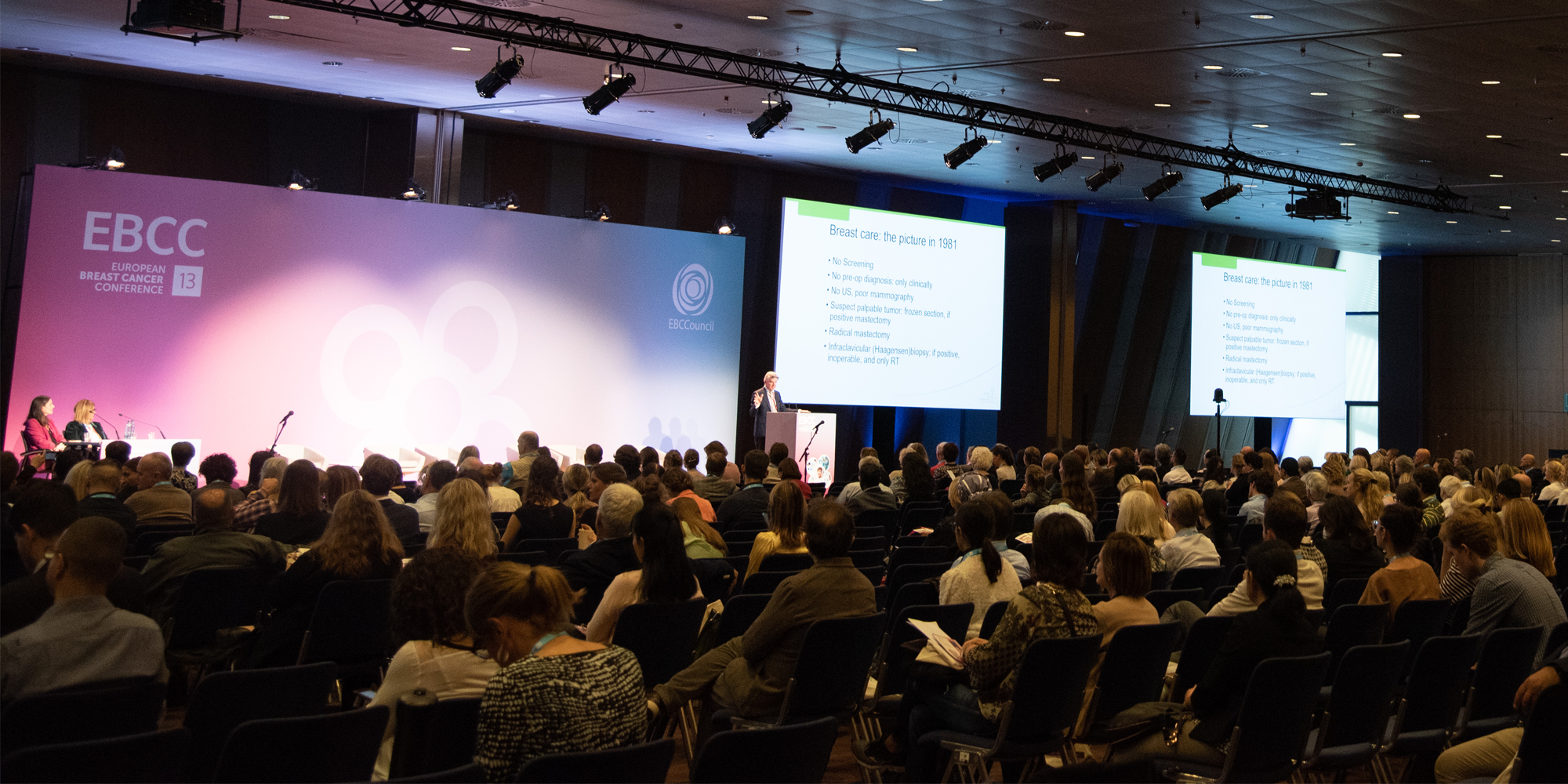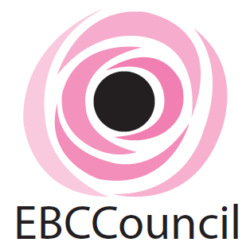The EORTC (European Organisation for Research and Treatment of Cancer) Breast Group organised the EORTC Breast Cancer Working Conference which was held every four years until 1991. This Conference brought together breast cancer clinical research groups to discuss results from their clinical trials
In 1988, Leuven researchers, all members of EORTC and chaired by Emmanuel van der Schueren, established a non for profit association known as the Breast Cancer Working Group (BCWG) to ensure that no individual was liable for the financial loss of the EORTC Breast Cancer Working Conference which was to be held in Leuven in 1991
The next conference was held in 1994 in Amsterdam and, following this, it was the plan to organise the Conference every two years. In 1996 it was held in Bordeaux and Florence was on the agenda for 1998.
In 1986, Umberto Veronesi, an Italian Surgeon from Milan, with a group of breast cancer specialists founded Eusoma, The European Society of Mastology, (later renamed The European Society of Breast Cancer Specialists), to address the problems and requirements that exist in the area of breast disease.
Between 1986 and 1990 EUSOMA’s members held informal discussions about different aspects of breast disease and ways to provide a more rapid and wider diffusion of results from breast cancer research to a wider group of specialists. There were no formal meetings during this time and these discussions did not result in the publication of any articles.
The Society’s activities began in earnest in 1991. In the early years, EUSOMA organised consensus conferences and scientific meetings that resulted in the publication of articles in the Breast and other journals.
In the meantime, at the European Society of Mastology (EUSOMA) Congress in Paris in February 1993, Umberto Veronesi presented the concept of a European organisation involving women in the fight against breast cancer, having seen how powerful women’s advocacy for breast cancer had been in the United States.
The response was immediate and a small group of women representing various European countries began laying the foundations for EUROPA DONNA – the European Breast Cancer Coalition. Under the guidance of Founding President Gloria Freilich and a committed Board, EUROPA DONNA held its first conference in Milan in 1994 and firmly established itself as Europe’s breast cancer advocacy organisation. In the beginning EUROPA DONNA was formed as an educational arm of the European School of Oncology (ESO) with the major support of the Director, Alberto Costa. EUROPA DONNA subsequently became an independent non profit organization whose members are affiliated groups from countries throughout Europe; it is led by an Executive Board, consisting of nine female members, three of whom must be survivors of breast cancer.
Umberto Veronesi wanted to disseminate breast cancer research results much faster and to a wider audience. In 1991, Umberto Veronesi and Emmanuel van der Schueren began to discuss how this could be done. The idea was to enlarge the EORTC Breast Cancer Working Conference to include more breast cancer related specialists and groups and thereby, increasing the flow of communication and information. In 1995 they approached FECS, the Federation of European Cancer Societies to organise the conference.
In June 1995, a dinner was organised between Umberto Veronesi, Alberto Costa (Director of ESO), Luigi Cataliotti, Gloria Freilich (President of Europa Donna), Martine Piccart (Chair of EORTC Breast Group), Aron Goldhirsch , Emiel Rutgers, Emmanuel van der Schueren (Secretary general of FECS) and Kris Vantongelen (FECS secretariat). During this dinner, the various organisations agreed to give up their annual meetings and to join forces with EORTC to organise a biennial European Breast Cancer Conference. The 8th EORTC Breast Cancer Working Conference was going to be held in Florence in September 1998 under the chairmanship of Luigi Cataliotti. It was agreed that this conference would become the 1st European Breast Cancer Conference (EBCC).
It was decided to use the legal structure of the already existing BCWG, the Belgian non for profit association, which was dormant at the time.
The aim of the EBCC conferences was to:
- To promote the establishment of a European platform for scientific exchanges about all aspects of breast cancer, from bench to bed side
- To facilitate the dissemination of breast cancer research results through the existing channels of the three founding Organisations
- To promote the implementation throughout Europe of multidisciplinarity in the field of breast cancer research and treatment and equal access of patients to quality treatments
- To communicate with the authorities, the public and the patients and provide them with the best available information
The first conference in Florence was deemed a success attracting 3.003 multidisciplinary participants from 74 countries. At the conference, delegates voted for the “Florence Statement”, setting out their vision and priorities for the future in research, treatment and care of breast cancer. This manifesto was given to Europa Donna to lobby EU policy makers.
On 26 November 1999, the membership of BCWG was reformed to include representatives of EUSOMA and Europa Donna as well as of the EORTC Breast Group.
After the 2nd EBCC in Brussels, and in consultation with Professor Senn, Chair of the St. Gallen Breast Cancer Conference, it was decided to move the meeting from September to March, so that EBCC and St Gallen Breast Cancer conference alternate every year in the same month and become complementary.
The European Breast Cancer Conference, now in its’ thirteenth edition, has become a unique conference, which encourages interaction between researchers, clinicians and patient groups. It brings together doctors, scientists, and patient advocates to talk not just about the latest scientific advances, but also the ethical, psychological, economic, social and practical issues concerned with caring for patients with breast cancer.
In 2005, the BCWG statutes were revised to be compliant with the amendments in the Belgian law for non-for profit associations. In 2012, the statutes were revised again, changing its name from Breast Cancer Working Group to European Breast Cancer Council, with the aim to further increase its breast cancer network as well as producing position papers to improve the quality of breast cancer care and treatment for patients.

